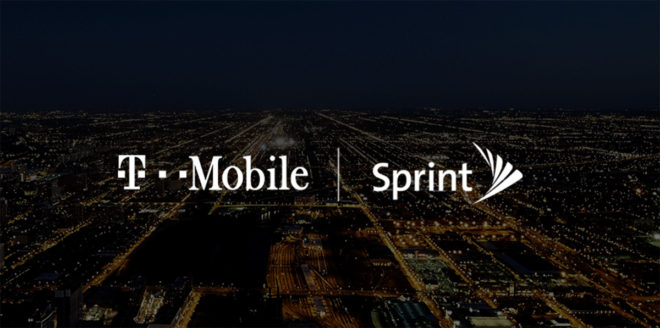T-Mobile and Sprint continue to advocate for their merger as they officially file FCC documents

As expected, T-Mobile and Sprint today continued work on their merger deal by filing a Public Interest Statement with the FCC. The two companies also made announcements to talk up their merger and share some more details on their plans.
5G is a major focus of T-Mobile and Sprint, with the two carriers saying that together they’ll be able to deploy a much better 5G network than either could if they remain separate. T-Mobile CEO John Legere claims that the new T-Mobile’s network could offer average speeds of 444Mbps and peak speeds of 4.1Gbps. The company has a goal of offering 5G speeds that are 5 times faster than LTE speeds today by 2021, all while boosting LTE speeds, too.
The combined T-Mobile-Sprint plans to offer better coverage to rural consumers, too, with download speeds of at least 10Mbps offered to 45.9 million rural residents, improved indoor and outdoor wireless coverage to tens of millions of consumers, and fixed in-home broadband service of 25/3Mbps to 52.2 million rural residents. “In fact, I plan for the New T-Mobile to be the country’s fourth largest in-home ISP by 2024,” says John Legere.

T-Mobile and Sprint also claim that their merger will create jobs, with a plan that could create 3,000 jobs in the first year and up to 9,600 direct and indirect jobs by 2021. The companies also say that they plan to focus on rural communities by adding at least 600 new stores and up to 5 advanced customer experience centers in those parts of the country.
Competition is another major focus of T-Mobile and Sprint. The companies claim that their merger will result in an increase in capacity and a lower cost to deliver a gigabyte of data. Legere points to analysis from economist Dr. David Evans, the T-Mobile and Sprint’s 5G network will get responses from AT&T and Verizon that’ll decrease the cost of a gigabyte by up to 55 percent. “This merger is about creating a company that can TRULY compete for the long term with the massive incumbents, who are getting bigger every day,” Legere says.
While T-Mobile and Sprint have laid out many arguments for why their merger should be approved, there are several opponents of the deal. One example is Peter Adderton, founder of Boost Mobile, who has said that the combined T-Mobile and Sprint’s share of the prepaid market would have “the effect of being a monopoly or extreme dominance in the category.” That could lead to increased wholesale rates for MVNO competitors as well as less competition and higher prices for prepaid customers, Adderton claims.
T-Mobile and Sprint’s merger is subject to regulatory approval, and the two carriers have said that they expect their deal to close no later than the first half of 2019. If you’d like to read T-Mobile and Sprint’s filing to the FCC, you can find it right here.
